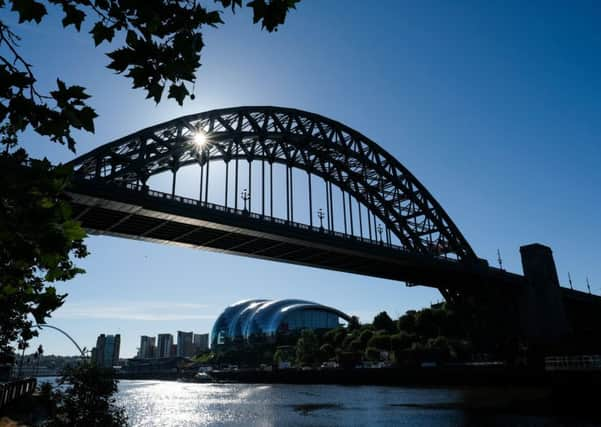Mark Ronan: How creative industries are key to the future


Visitors’ trails at the Great Exhibition of the North in Newcastle take in the cat’s eye (invented in Halifax), teams developing worldwide digital gaming content and the architects helping to design a superfast Hyperloop transport system for our region.
Although the initial spark for many of these products may have come from one person, it takes the combined talents of many to make that blueprint a reality. Successful creativity involves collaboration, communication and a mixing of methods to realise the mind’s invention.
Advertisement
Hide AdAdvertisement
Hide AdIt’s no coincidence that part of the Great Exhibition is given over to the creative spirit of the most imaginative section of our society – children. When asked to come up with ingenious inventions for the exhibition, more than 1,800 children from across the North submitted ideas. A selection have been turned into reality.
We should be harnessing children’s creativity from the youngest age – from the delightful flights of fancy which begin as soon as toddlers express themselves, to the heights of imaginative flair at which teenagers excel.
The creative industries contribute £92bn to the economy every year and our creativity as a nation is the envy of emerging economies such as China. The World Economic Forum says creativity will be in the top three most important workplace skills by 2020. So it’s regrettable that entries to arts subjects at Key Stage 4 (aged 14-15) are now at the lowest they have been for a decade and are continuing to decline nationally.
The Education Policy Institute estimates that 19,000 fewer pupils in England took an arts subject at KS4 in 2016 than in 2014. That’s 19,000 fewer pupils encouraged to think creatively – a huge potential loss to the economy.
Advertisement
Hide AdAdvertisement
Hide AdEvery industry thrives on new ideas and the ability to step back, imagine and invent. That takes confidence and a mindset that is comfortable outside the box. Innovative thinking is best developed through the arts but can be applied to any industry – from scientific research, to law, to the fast-developing digital and video game industries.
Prime Minister Theresa May, addressing a creative industries reception in May, said: “The value of culture and creativity lies not only in its economic strength. Just as important is the less tangible contribution that it makes to our national life.
“The work you do brings joy to millions. It fosters unity, gives us a common currency. It helps to define and build our sense of national character.”
Creativity is at the heart of what it means to be human. Innovation and change fire our progress as a society. A growing body of evidence also links creativity to emotional wellbeing.
Advertisement
Hide AdAdvertisement
Hide AdAn all-party inquiry reported last year that the arts can keep people well, aid recovery from illness and help people live longer. Self-expression and creativity are also a great release from the stresses and anxieties which beset far too many of our young people today.
Pocklington School is proudly bucking the national trend of a decline in investment in arts education. Our recently-opened Art and Design Technology Centre was part-funded by a £2m contribution from the school community – most of it raised within 12 months.
Those who contributed were from across the careers spectrum, including businesspeople who weren’t remotely “arty” but who recognised the value of innovation. They realised what they were contributing to wasn’t just a building but the commitment to helping inspire future generations to help maintain this country’s great tradition of applying fresh ideas and new technology to create new products and services. It is something the school is very much committed to: head of art Dan Cimmermann is a working artist who’s headlining The Summer Exhibition at Newcastle’s Biscuit Factory – also on the Great Exhibition trail.
Northumbria University’s pro vice-chancellor Steven Kyffin, a former pupil and appeal patron, opened our new centre. He made the point that creativity is not ‘colouring in’ but is about helping to take us forward.
Advertisement
Hide AdAdvertisement
Hide AdHe said: “We’re not designing just technological ‘stuff’ any more, we’re building on a cultural platform; designing to enrich the human experience, create new ways of doing business, responding to our deepest values… and indeed, new ways of educating people… we’re transforming the way we live, the way we ‘need’ to live, through using multi-disciplinary teams.”
Today’s students are developing the skills which will lead us all into the future; the skills of creativity, innovation and collaboration which will not only inspire them for life, but help visualise and build a better future for us all.
Mark Ronan is Headmaster of Pocklington School.